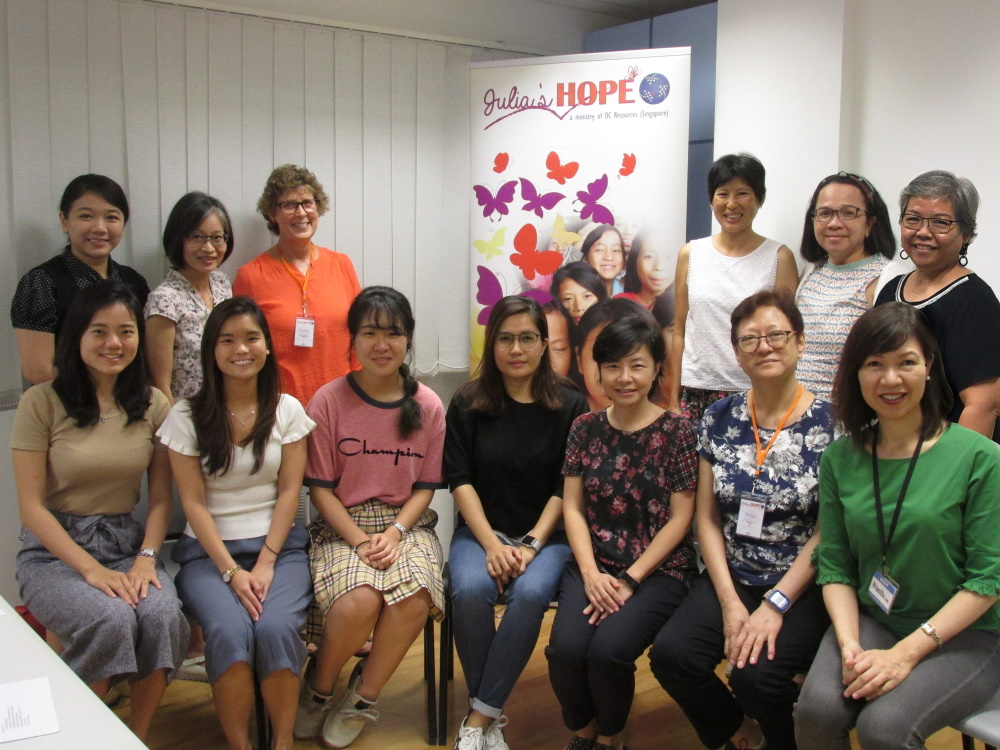 When Julia's Hope, a ministry facilitated by Debbie in Singapore, recognized its need to move evaluations from a simple "Did you enjoy this event?" to "How were you transformed by this training?" she came to the Global Research Team for help. Could we help her measure how participants had grown in their Knowledge, Attitudes and Practices (or, Head/Heart/Hands)? Yes, indeed!
When Julia's Hope, a ministry facilitated by Debbie in Singapore, recognized its need to move evaluations from a simple "Did you enjoy this event?" to "How were you transformed by this training?" she came to the Global Research Team for help. Could we help her measure how participants had grown in their Knowledge, Attitudes and Practices (or, Head/Heart/Hands)? Yes, indeed!
Julia's Hope was named after Debbie's niece who had a vision to heal and restore trafficked women. Julia's Hope uses Flourish ©, a 9-week Life Skills training curriculum touching women from 20 to 70, from poor rural communities to professional urban businesswomen.
This is one example of how the Global Research Team comes alongside ministry partners to help them become more fruitful. How might we come alongside your ministry?